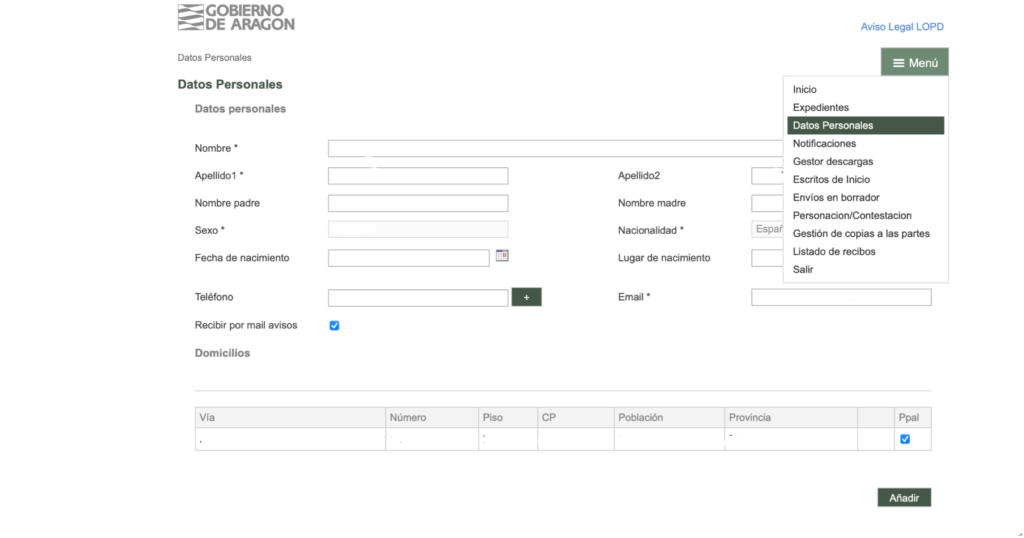On March 20, Royal Decree-Law 6/2023 comes into force regarding telematic notifications to legal entities, establishing that these must be made in accordance with the provisions of Article 162 of Law 1/2000, of January 7, with the aim of promoting procedural efficiency through the use of electronic means.
In this sense, Article 273.3 of Law 1/2000, of January 7, establishes that at least the following parties shall be obliged to intervene with the Administration of Justice through electronic means:
a) Legal entities.
b) Entities without legal personality.
c) Those who exercise a professional activity for which compulsory membership is required for the procedures and actions carried out with the Administration of Justice in the exercise of such professional activity.
d) Notaries and registrars.
e) Those who represent an interested party who is obliged to interact electronically with the Administration of Justice.
f) Civil servants of the Public Administrations for the procedures and actions carried out by reason of their position.
Therefore, all the subjects listed above are obliged to communicate an electronic address to the Administration of Justice, since with this new reform all communications of Judicial Bodies with these persons will be made by electronic means (even if it is the first summons or subpoena). In addition, all these notifications will be fully effective three calendar days after they have been made available, even if their content has not been accessed.
What this reform will mean is that, as of March 20, a court official from the Service of Communications and Embargos (SACE) will no longer appear at the registered office of a company to notify a lawsuit, a complaint, or any other document, summons, injunction, etc., but that said notification will be made by electronic means at the electronic address provided, and such notification will be fully effective three calendar days after it is made available, even if the legal entity has not communicated it.
Therefore, in order to avoid any negative or detrimental consequences of not receiving important notifications regarding legal proceedings, such as summons to appear in court, court decisions, summons, subpoenas, injunctions, etc., it is recommended that all legal entities communicate an e-mail address to the Administration of Justice as soon as possible, it is recommended that all legal entities communicate an e-mail address to the Administration of Justice as soon as possible.
Legal entities domiciled in Aragon can communicate their electronic address through the Electronic Judicial Office of the Autonomous Community of Aragon, whose web page is: https://sedejudicial.aragon.es following the instructions listed below:
1.- Click on a box like the one below (located at the bottom right of the web page https://sedejudicial.aragon.es).

*In order to access the service it is necessary for the legal entity to have an electronic certificate.
2.- Access, within the menu section (upper right hand side) to the drop-down menu “personal data”.

3.- Fill in the personal data of the legal entity.
4.- Click on the “receive e-mail alerts” section so that the option is checked, indicating an e-mail address that is always accessible to the people in the company who are responsible for receiving the most relevant communications by e-mail.
5.- And finally, click on save.
From this point on, it is very important to establish an internal protocol to ensure that the e-mail address provided is checked daily, to ensure receipt of any judicial notification, designating an account manager, and an alternate in case of absence of the latter, as well as establishing any other measure to ensure the intended purpose.
José Ramón Bonilla Moreno
Partner – Legal Area
LACASA ABOGADOS, PALACIOS & PARTNERS.
